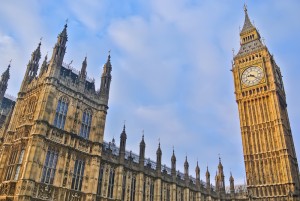Chancellor Rishi Sunak has announced measures to create more affordable housing and introduce a 2% stamp duty surcharge on non-UK residents in his first Budget.
 The government has pledged a £10.9 billion increase in housing investment to build at least one million new homes per year by the end of Parliament and an average of 300,000 homes by the middle of 2020s.
The government has pledged a £10.9 billion increase in housing investment to build at least one million new homes per year by the end of Parliament and an average of 300,000 homes by the middle of 2020s.
It has allocated £1.1 billion from the Housing Infrastructure Fund to build 70,000 affordable homes in high demand areas – such as Manchester, South Sunderland and South Lancaster.
The chancellor also announced funding for removing unsafe cladding.
Meanwhile any non-UK residents who purchase a residential property in England or Northern Ireland from 1 April 2020 will have to pay an additional 2% stamp duty.
The move is aimed at controlling house price inflation and to help UK residents take their first step and move up the property ladder.
Sunak said the money raised from the surcharge will be used to fund measures to address rough sleeping. Indeed, in his speech the Chancellor promised £650m to provide permanent dwellings for rough sleepers.
First-time buyers
Although these moves have been welcomed, a number mortgage and property professionals voiced disappointment there was no mention of any specific plans to support those facing barriers to homeownership.
In particular there was no announcement about a potential extension to or replacement of the successful Help to Buy Equity Loan scheme, which is due to end in 2023 and close to non-first-time buyers in 2021.
Steve Seal, managing director of specialist lender, Bluestone Mortgages, said: “With Help to Buy closing to second-time buyers in April, it’s discouraging that today’s Budget did not announce a replacement scheme for this community.”
And Martijn van der Heijden, chief strategy officer of online mortgage firm Habito, said: “At a time when current and aspiring homeowners are seeking confidence and reassurance, the absence of specific measures to support them onto the housing ladder or into their next home is disappointing.
“We know that access to the housing market remains a fundamental challenge for many, so the lack of structural measures to get a broken housing market moving will come as unwelcome news for households up and down the country.”
Self-employed mortgages
In the small print of the Budget, the government said it had reviewed how it could better support the self-employed. As a result, it would be improving access to finance and credit for this group of people.
It said it would be looking for way to improve the guidance available for self-employed people applying for mortgages.














